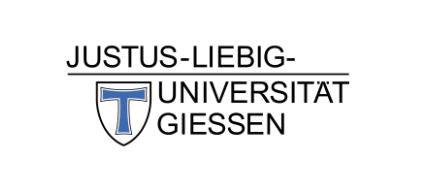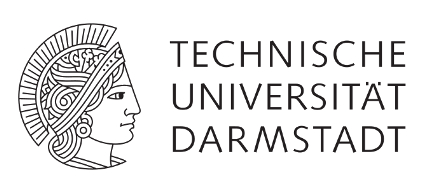23.05.2025 Outstanding success in the Excellence Strategy

The Adaptive Mind (TAM)
The ability to adapt behaviour according to the situation is an elementary important characteristic of man. A disturbance of this ability can lead to mental illness. Despite their central importance for daily life, the mechanisms that allow and control human adaptability are not yet understood. Even the latest artificial intelligence and robotics systems lack this adaptability. Cooperation between the Justus-Liebig-University Gießen (JLU), the Philipps-Universität Marburg and the TU Darmstadt in the cluster of excellence The Adaptive Mind" unites researchers from psychology, cognitive and neuroscience with experts in artificial intelligence, machine learning and robotics to decode universal principles of human adaptability. In this way, the researchers want to contribute to long-term improvements in mental health, but also to the development of more robust robotics and AI systems.
„We are all in the starting blocks and can’t wait to finally put our many research ideas into practice and train the next generation of young researchers," says Prof. Dr Roland Fleming, one of the speakers for the new cluster. This is a wonderful confirmation of the immense support we have received from the state of Hesse, the universities and our researchers over many, many years. " His JLU colleague and co-speaker, Prof. Katja Fiehler adds: Understanding human behaviour is certainly one of the biggest scientific challenges. With the Cluster of Excellence, we will fundamentally change psychological research and rewrite textbook knowledge. We will finally be able to explain and predict human behavior and its enormous adaptability outside of artificial laboratory conditions, in the real world. “
People are unbeatable in dealing with change: the human eye can adapt to the brightness of its surroundings, whether at midday on the beach or on a moonless night. People do not forget about cycling, although their bodies change constantly in the course of life. And they can handle different liquids - from water to honey. For robots, on the other hand, such adaptability is still out of reach. People react to such changes of circumstances sometimes with stability and sometimes with adaptation. This sometimes requires enormous flexibility to survive in a dynamic and uncertain world.
„But how do you decide when the human brain will take up which strategy? What is the relationship between stability and adaptation? And what happens if the adaptation process fails? " These questions, says Prof. Frank Bremmer, spokesperson for the Philipps-Universität Marburg, examines researchers from different disciplines in the future cluster of excellence. The researchers are trying to decode universal principles of human adaptability. The topic does not only appear in the cognitive and neuroscience sciences and psychology, but also in learning robots or training neural networks. The Justus-Liebig-Universität Gießen is in charge, with co-applicants being TU Darmstadt and Philipps-Universität Marburg. The Goethe University Frankfurt and the Frankfurt Institute for Advanced Studies are also involved.
Homepage: The Adaptive Mind
Participating Institutions: Justus Liebig University Giessen, Philipps University Marburg, Technical University of Darmstadt, with involvement from Goethe University Frankfurt and the Frankfurt Institute for Advanced Studies (FIAS)
Research Focus: Universal principles of human adaptability in behavior and cognition aimed at enhancing the understanding of mental health and contributing to the development of more robust AI and robotics systems. At JLU, the initiative is part of the focus area Perception and Adaptive Behavior.
Speakers: Prof. Dr. Roland Fleming and Prof. Dr. Katja Fiehler (both JLU).


